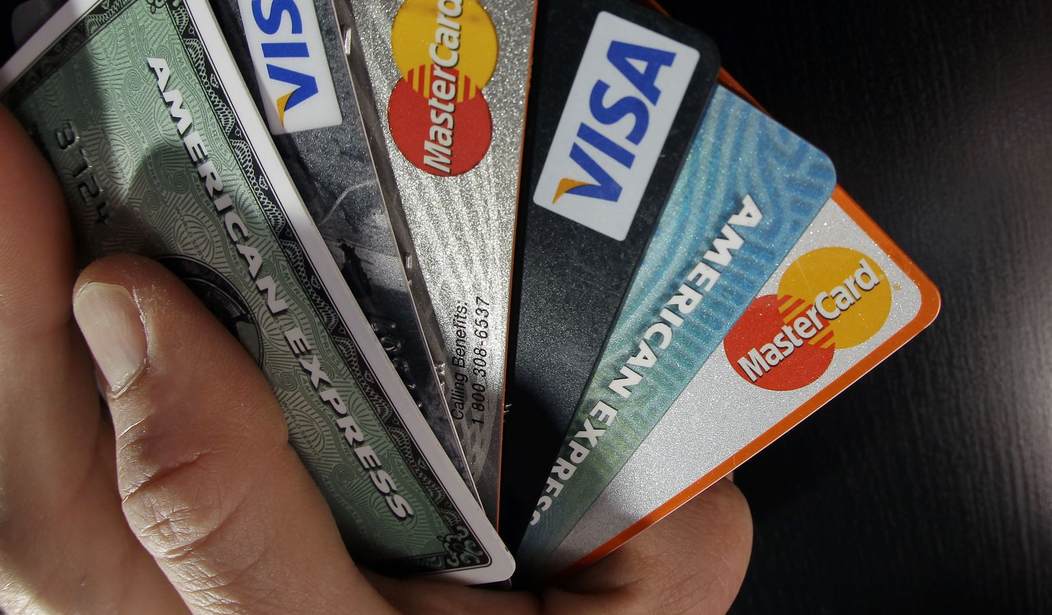Independence Day is known for many things. Some might think of everything and everyone all decked out in gawdy red, white, and blue attire. Others surely think of hot dogs and fireworks. Another feature of the Fourth of July, this and every year, is the immense amount of travel. This year alone, AAA Travel projects almost 71 million Americans will travel in some way, shape, or form this Fourth of July – a record level. Just last week, the Transportation Security Administration (TSA) clocked roughly 3 million people going through airport security checkpoints in a single day. Experts are predicting a new record to be set this week.
Many Americans have the opportunity to travel because of the credit card rewards they get from airline travel or from purchasing gas. Others fund their travel with rewards from prior transactions. Even those not traveling use rewards programs and cash back to help lessen the sticker shock of inflation when they stock up on food and drinks for a holiday picnic. This ecosystem is a hit with consumers and helps stimulate the American economy and local businesses. However, Congress and the Biden administration are considering proposals that would jeopardize the rewards on which millions of Americans rely.
Last year, Senators Dick Durbin (D-Ill.) and Roger Marshall (R-Kansas) introduced the Credit Card Competition Act (CCCA). The bill establishes a one-year timeline for the Federal Reserve to issue sweeping regulations on American credit card companies. The regulations would force credit card companies to allow their transactions to be processed by multiple networks. CCCA also dictates that at least one of the networks has to be a network other than Visa or Mastercard – two largest players in the payment processing market. Ultimately, this would cause credit card issuers to cut back severely on rewards programs.
Credit card rewards are largely funded by interchange fees. These are the fees that networks like Visa and Mastercard charge retailers to process transactions. The fees generate revenue for credit card companies that allow them to create popular rewards programs. They create revenue that makes lending to “higher risk” customers more sustainable. They also make transactions safer, as ensuring processing goes through a trusted network benefits both retailers and consumers. Fees typically range between one and three percent of the total amount of any given transaction.
Recommended
Sen. Durbin introduced an amendment to the Dodd-Frank Wall Street Reform and Consumer Protection Act in 2011. This amendment placed a strict cap on interchange fees on debit cards. Within a few years, debit card reward programs were eliminated by card issuers. Consumers ought to be afraid that history will repeat itself should the CCCA become law.
According to estimates, 15 million domestic trips are awarded through credit card reward points in the U.S. annually. Credit card rewards generated $23 billion in economic activity in the U.S. in 2022 alone. Last year, 9 percent (or more than 56 million) of total passengers used $0 fare tickets.
If CCCA becomes law, Fourth of July travel will look very different in years to come. By losing access to rewards points, travelers will lose their spending power. American businesses will miss out on much of the economic activity associated with travel.
Unfortunately, Congress is not the only government entity interested in disrupting the reward points ecosystem in the US. In May, the Consumer Financial Protection Bureau (CFPB) held a joint hearing with the Department of Transportation (DOT) to discuss supposed “issues” with airline rewards programs. The DOT and CFPB set out to demonstrate that these programs were unpopular with consumers and were, in fact, predatory in nature.
This hearing was often bereft of any actual evidence. Meanwhile, the evidence shows the vast majority of travelers – across generations – value airline loyalty programs. Bureaucrats and witnesses tried to demonstrate lack of competition in the credit card and airline markets. However, the data shows the average American owns almost four different credit cards. Further, both Spirit and Allegiant airlines were represented on the panel and both testified to the value rewards programs have for their businesses – both seeking to compete with the “major” American airline companies.
Holidays like the Fourth of July supercharge businesses across the economy. A large part of that is spurred on by travel. Many Americans flock to cities like Washington, D.C. or Los Angeles to see dazzling fireworks displays. While there, they patronize local restaurants and businesses. They purchase gas to travel by car or fly domestic airlines. Credit card rewards points incentivize these purchases and – in many cases – make them possible in the first place.
With proposals like CCCA, the federal government is seeking a solution to a problem that simply does not exist. As throngs of people flood American airports this Fourth of July, or pull into American gas stations, wearing novelty clothing items emblazoned with the American flag, lawmakers should remember this. Such displays of patriotism and economic activity that supports businesses from sea to shining sea is made possible by the ingenuity of American credit card companies and their desire to create rewards programs that serve the American people. It would be a shame to disrupt all that.
If Congress wants Americans to travel and to enjoy Fourth of July (or any other holiday) to the fullest, it should stop the assault on credit card rewards programs.
Dan Savickas is director of policy at the Taxpayers Protection Alliance.

























Join the conversation as a VIP Member